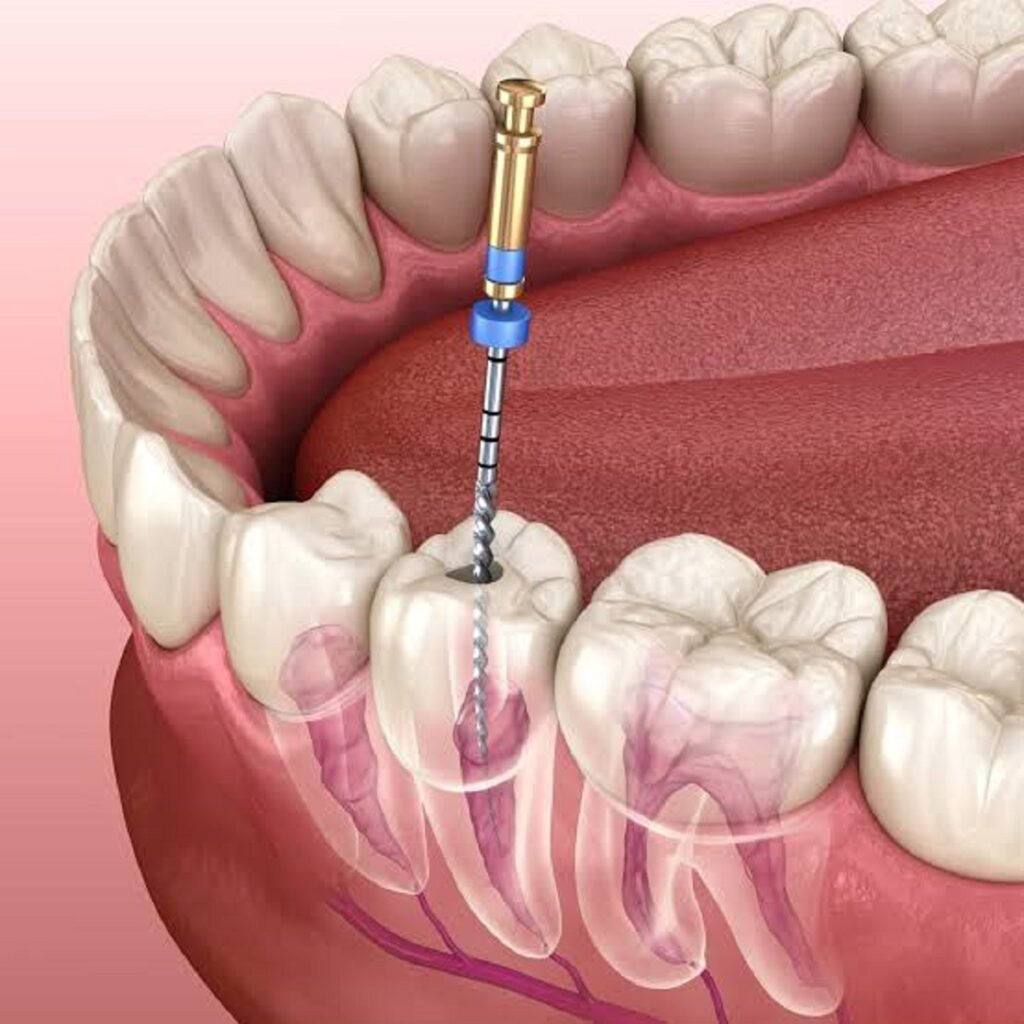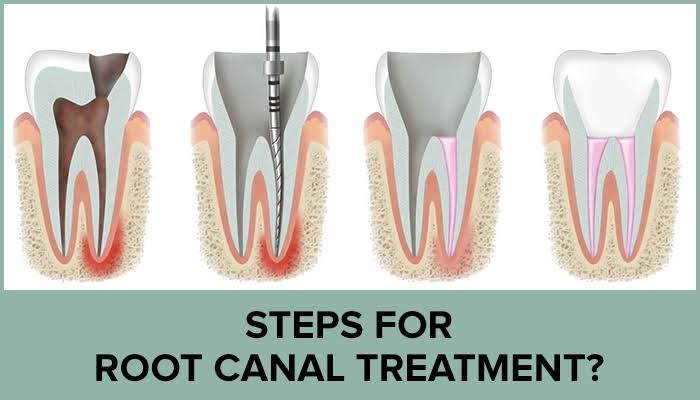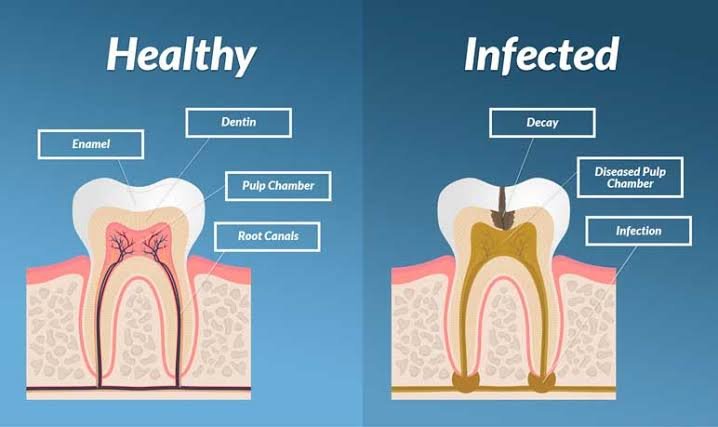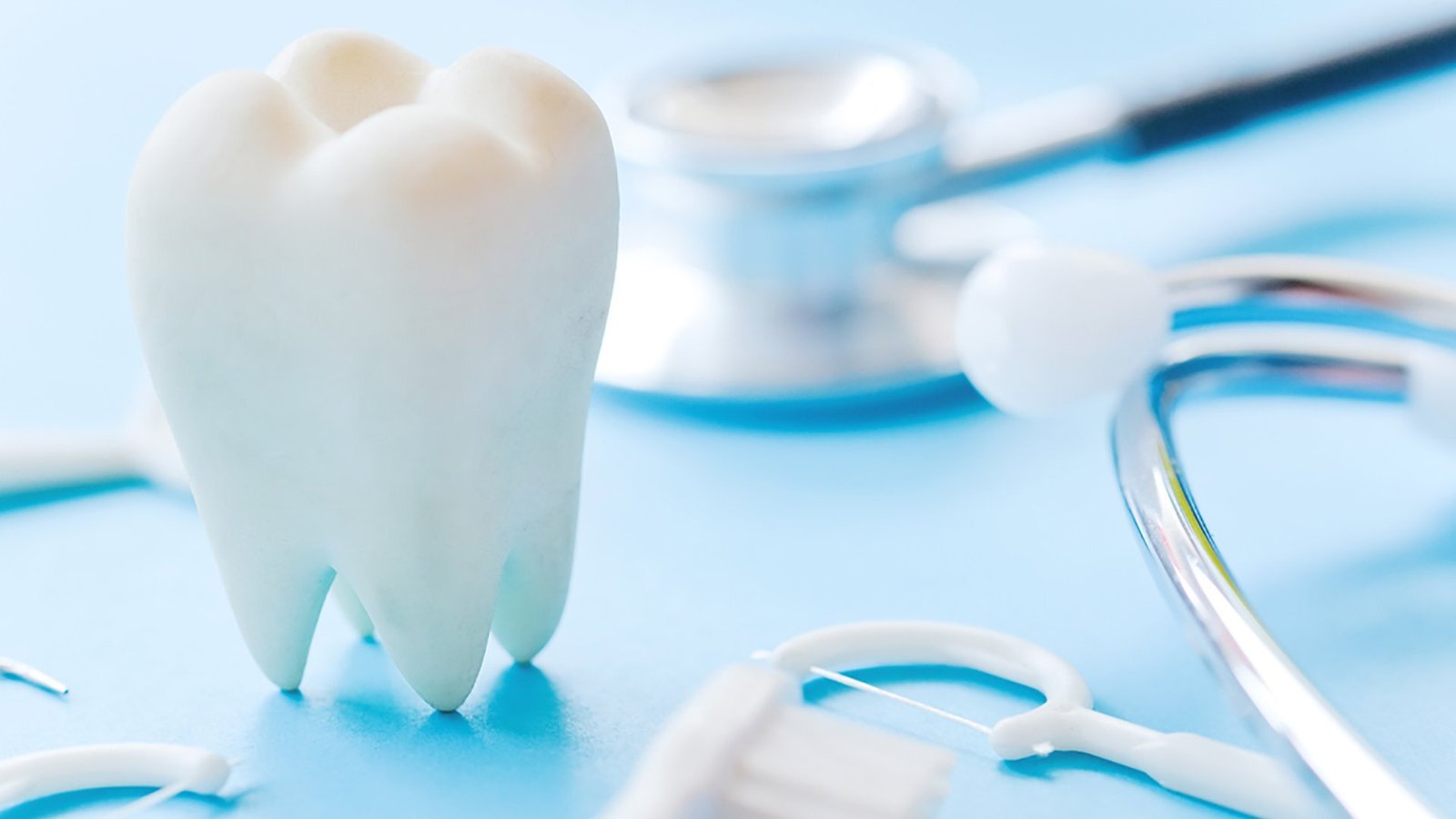Usually, treatments like a root canal are the final way to preserve a cracked and infected tooth. And having said that, a few individuals refrain from this treatment due to the fear of pain. But not anymore, modern dentistry has evolved regular treatment into pain-free treatment procedures.
The most crucial part of treatment is the dental root canal recovery itself. Taking good care of post-root canal treatment provides you with long-term results and prevents further complications.

And before you consider having treatment, we have compiled an overview of the dental root canal recovery procedure to help you make informed decisions. Our article covers the process, advantages, and more.
What Is Dental Root Canal Recovery?
Root canal recovery refers to a specific period after the root canal treatment is completed. During which tissues around the treated tooth recover, and post-operative pain disappears.

A root canal is a dental procedure to remove the pulp (the soft tissue within the tooth that holds nerves and blood vessels) that has become infected or damaged, clean, disinfect, and seal the tooth.
Dental Root Canal Recovery Time
Dental root canal recovery from a root canal is typically easy, and most individuals are back to normal in 1–2 days. Some minor symptoms will linger as your body recovers, though. This is what happens:
- Day 1–2: Mild soreness, sensitivity, or swelling is to be expected. Take over-the-counter pain medication such as ibuprofen. Do not chew on the treated side and eat only soft, non-irritating foods for comfort and protection.
- Days 3–5: Pain and sensitivity should subside. Start transitioning to your regular diet, but do not eat hard, crunchy, or sticky foods that might interfere with healing or harm the temporary filling or tooth structure.
- Day 6 and later: Healing should be almost complete. Resume regular eating and hygiene routine. If pain returns, swelling is not gone, or you see signs of infection, call your dentist as soon as possible for examination and treatment.
Full Recovery Timeline
Root canal treatment eliminates the infection and establishes the foundation for oral health over the long term, provided that quality material and proper care subsequently are used.

Although the symptoms are alleviated within a short period, healing of the tissues and gums is complete in a few weeks. Follow your dentist’s aftercare to avoid complications.
Hacks for Managing Pain and Discomfort
After the root canal treatment, it is expected that one will experience some sort of pain or discomfort, especially in the initial days. Pain should cease as the tissue heals. With proper care throughout this period, pain can be reduced, and the dental root canal recovery can be completed sooner.
- Take medicine: Paracetamol relieves pain and inflammation. Follow your dentist’s dosage instructions.
- Apply a cold pack: Place a cold pack outside your cheek for 10–15 minutes to reduce swelling and numb pain.
- Employ gentle oral care: Brush and floss carefully around the treated site. You can use saltwater, it will help reduce swelling and clean your gums.
- Track symptoms: If the pain continues after a few days, see your dentist. Practices such as Aditie provide professional aftercare to ensure an ache-free dental root canal recovery.
- Do Not Chew on the Treated Side: Dental root canal specialist suggests, do not chew on the treated side after a root canal to avoid putting pressure or harm to the healing and temporary filling area.
- Sleep with Your Head Elevated: Sleep with your head elevated to reduce blood flow to the painful location, which will help to decrease swelling and throbbing. Slouching slightly or resting on an extra pillow can also be more comfortable and allow for healing.
Aidite offers quality aftercare and cutting-edge imaging technology to facilitate an ache-free dental root canal recovery and timely identification of any complications.
6 Aftercare Oral Care Tips Post Root Canal
To maintain your root canal treatment for a longer period, you need to ensure you take good care of your oral health.
- Tip 1. Follow the Instructions Given by Your Dentist: Adhere to any individualized instructions that your dentist has provided you with, including medication, mouth care, and return visits.
- Tip 2. Brush Daily: Use soft toothbrush and toothpaste that has fluoride in it, follow this routine in morning and at night.
- Tip 3. Rinse with Salt Water: Rinse very gently with warm salt water 2–3 times a day to reduce swelling, clean the site, and aid in faster gum healing.
- Tip 4. Stick to Prescription Medicines: Take prescription or over-the-counter painkiller medication, like acetaminophen, to effectively manage the pain you are going through and also to reduce inflammation in your body.
- Tip 5. Follow-Up Appointment: Aftercare through a follow-up appointment with dental root canal specialist gives way to an easy healing process and enables the dentist to place a permanent crown, which safeguards the treated tooth in the long term.
- Tip 6. Be on the Lookout for Warning Signs: After the procedure and during the root canal recovery period, be conscious of warning signs that may arise due to several reasons. Look for:
- Severe pain or increasing pain
- Persistent swelling,
- Fever or infection signs,
- Allergic response to the drug
If these symptoms get worse instead of better over a few days, call your dentist at once.
Dietary Advice by Professionals
After a root canal procedure, diet is very important for the healing process and in preventing further complications. The following are some suggestions:
- Go for soft food: Throughout your period of dental root canal recovery, go for food that is not hard, such as yoghurt, smoothies, or potatoes; they are easy to eat and cause no pain.
- Steer clear of hard or sticky food: Candy, chips, and nuts can destroy the temporary filling or crown and lead to pain. They also increase the likelihood of moving the cover over the treated tooth.
- Select lukewarm meals: Hot and cold foods may irritate the sensitive tooth surface. Lukewarm meals are not harsh on healing tissues and avoid pain due to temperature sensitivity following treatment.
- Keep yourself hydrated: Drink water during the day to facilitate healing and oral health. Avoid straws since suction can disturb temporary dental fillings or unnecessarily inflame the treated area.
- Use healing nutrients: Consume foods high in vitamins A, C, and calcium to aid in gum healing and fortify neighbouring teeth, helping overall oral healing and immune system function.
- Limit sugar intake: Too much sugar use stimulates bacterial growth and increases the likelihood of reinfection or new decay. Use low-sugar alternatives to protect your treated tooth while it heals.
- Stop Smoking and Drinking: Alcohol and smoking cause delays in healing, decrease the circulation of blood to the gums, and promote infection after root canal treatment. Both must be avoided strictly.
When to See a Dentist?
Regular check-ups may avoid minor complications from turning into real infections. Go see a dentist if you have:
- Severe toothache or throbbing pain
- Swelling near the infected tooth
- Sensitivity to heat or cold that is ongoing
- Staining or discolouration of a tooth
Also, in case you have been treated with a root canal and you are still experiencing pain or discomfort after seven days, you need to return to your dentist to check for complications of the treatment.
Conclusion
With advanced methods and effective aftercare tips, healing post root canal treatment can be pain-free or stress-free. From managing initial pain to choosing the best foods and practising good hygiene, every step you take following the treatment makes a big difference in your long-term success.
Clinics such as Aidite offer start-to-finish root canal procedures, integrating skilled diagnostics, innovative methods, and tender loving care. Their professionals provide untroubled dental root canal recovery and long-lasting results, allowing you to smile once more.
FAQs
To fully recover from a root canal treatment, how much time is required?
Most people usually take a few days to recover. Pain-wise, it usually takes not more than a week at best. With good care and attention, the process of healing can achieve completion within the period of 1 to 2 weeks.
Can I eat normally after a root canal?
Avoid consuming any food until numbness disappears completely. When the numbness goes back to its normal condition, start introducing soft foods for a few days. Avoid chewing the treated tooth as well until the permanent filling is properly positioned and secured in place.
Do I really need to get my tooth capped or crowned after a root canal?
Generally, yes. A crown covers the treated tooth so it won’t fracture and will function normally.
Will I hurt afterwards?
Some mild pain is expected once a root canal has been done; the pain, however, is usually less than the pain you were in before the procedure. Luckily, this pain is simple to treat, in that pain medication is simple enough to buy over the counter, and can be simple to treat the pain you are experiencing.
How should I care for my tooth following a root canal?
Brush and floss carefully, avoid eating hard foods on the treated side, and go back to your dentist to have a crown placed. Periodic check-ups for monitoring of healing.



